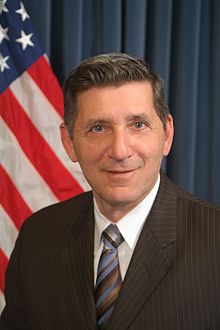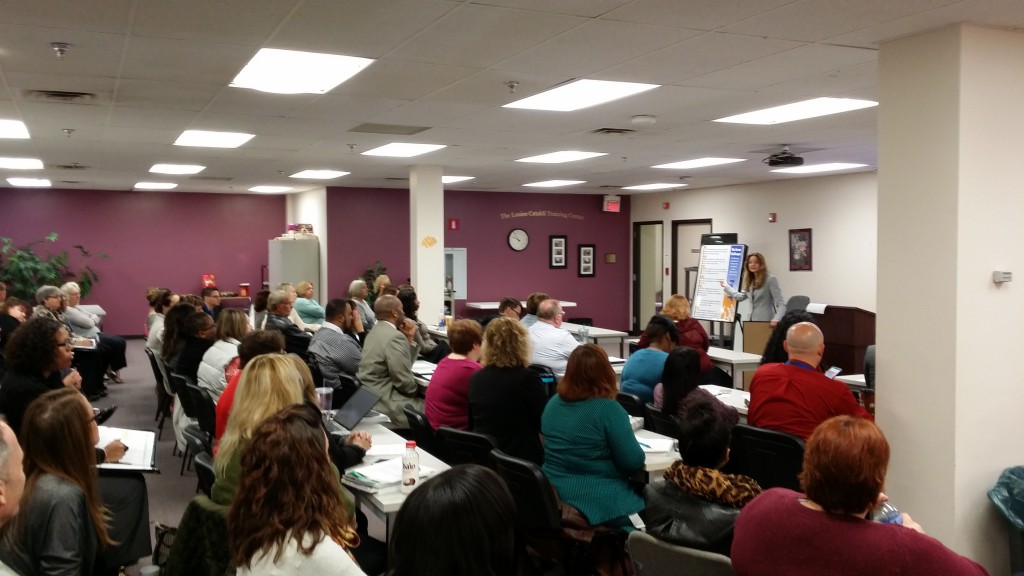Last week, the Senate voted unanimously to appoint Michael P. Botticelli as Director of The Office of National Drug Control Policy (ONDCP).
This is a significant step toward advancing sustainable systems change, as Boticelli has a focus on substance use treatment. His two decades of experience working in this field, including as Director of the Bureau of Substance Abuse Services at the Massachusetts Department of Public Health, equips him with the skills to implement evidence-based programs and span boundaries among partnerships with law enforcement agencies, health and human service agencies and stakeholder groups. Boticelli also has experience establishing a treatment and prevention systems for adolescents.
Read Boticelli’s introductory remarks as Director on the ONDCP blog and below, and join me in welcoming him to office:
Many great movements to change public perception and policy around a public health issue have been fueled by people with a disease speaking out publicly. What is seen as someone else's problem—someone else’s disease – takes on a new dimension when people speak up about it.
Such was the case when Betty Ford revealed her breast cancer diagnosis and her substance use disorder. Such was the case when Magic Johnson's revealed that he was HIV positive, spurring action to stem the AIDS epidemic.
Yet, despite the fact that nearly every family and community in America is affected by a substance use disorder, those fighting to overcome this disease are too often hidden in the shadows of shame and denial. It is whispered about. It is met with derision and scorn.
According to the National Survey on Drug Use and Health, only 1 in 9 people with a diagnosable substance use disorder gets treatment. Compare this to the treatment rate for diabetes, for which 72% of people with the disease receive care.
When treatment is provided for substance use disorders, it too often comes at the most acute stages of the disease when effective treatment is far more challenging and costly than in the early stages. Because substance use disorders have historically gone unidentified for far too long, and timely access to treatment has been far too difficult to come by, a person is expected to hit “rock bottom” before seeking help for a substance use disorder.
Standard medical care does not allow a diabetic to enter kidney failure before offering insulin. Yet untreated substance use disorders routinely proceed unchecked until they have reached such levels of emergency. In addition to the unnecessary suffering for patients and their families, our current approach costs the United States hundreds of billions a year in increased health care costs, crime and lost productivity-- over $223 billion related to alcohol and $193 billion related to illicit drugs.
Decades of scientific research have proven that substance use disorders are a health issue: chronic medical conditions with genetic, biological and environmental risk factors. Effective substance use disorders requires a comprehensive, public health approach involving evidence-based prevention, early intervention, treatment and recovery support services. The National Drug Control Strategy, the Obama Administration’s template for drug policy, outlines more than 100 action items across federal government to prevent drug use and its consequences.
Earlier this month, President Obama in his 2016 Budget requested historic levels of funding --including $133 million in new funds-- to address the opioid misuse epidemic in the U.S. Using a public health framework as its foundation, our strategy also acknowledges the vital role that federal state and local law enforcement play in reducing the availability of drugs—another risk factor for drug use. It underscores the vital importance of primary prevention in stopping drug use before it ever begins by funding prevention efforts across the country. It sets forth an agenda aimed at stripping away the systemic challenges that have accumulated like plaque over the decades: over-criminalization, lack of integration with mainstream medical care, insurance coverage and the legal barriers that make it difficult for people once involved with the criminal justice system to rebuild their lives.
The implementation of the Affordable Care Act will dramatically increase coverage for treatment and ensures that services are comparable to other chronic conditions for more than 60 million Americans. This is the biggest expansion of substance use disorder treatment in a generation, and it will transform millions of lives.
All of these advancements, however, are not enough unless we fundamentally change the way we think about people with addiction. There are millions of people in recovery in the United States leading meaningful, productive lives full of joy and love and laughter – and I am one of them.
Tonight, the United States Senate voted to confirm my nomination as Director of National Drug Control Policy. This is an honor I never dreamed of 26 years ago, when my substance use disorder had become so acute that I was handcuffed to a hospital bed. I accept this challenge with the humility and tenacity of someone in long term recovery.
I am open about my recovery not to be self-congratulatory, I am open about my recovery to change public policy. I have dedicated my life to treating drug use as a public health issue, and that’s how I approach this new role, as well. I hope that many more of the millions of Americans in recovery like me will also choose to “come out” and to fight to be treated like anyone else with a chronic disease. By putting faces and voices to the disease of addiction and the promise of recovery, we can lift the curtain of conventional wisdom that continues to keep too many of us hidden and without access to lifesaving treatment.
It is time to make a simple, yet courageous decision to be counted, to be seen and to be heard.
Share your story with us today.

 Juvenile Justice Reform
Juvenile Justice Reform

 We’re pleased to honor the achievements of Dr. H. Westley Clark in light of his recent retirement including his incredible impact on substance abuse treatment and commitment to the success of our young people.
We’re pleased to honor the achievements of Dr. H. Westley Clark in light of his recent retirement including his incredible impact on substance abuse treatment and commitment to the success of our young people.

 The
The  A recent study in the
A recent study in the  Findings of a
Findings of a  The
The  Editor's note: this article originally appeared on
Editor's note: this article originally appeared on